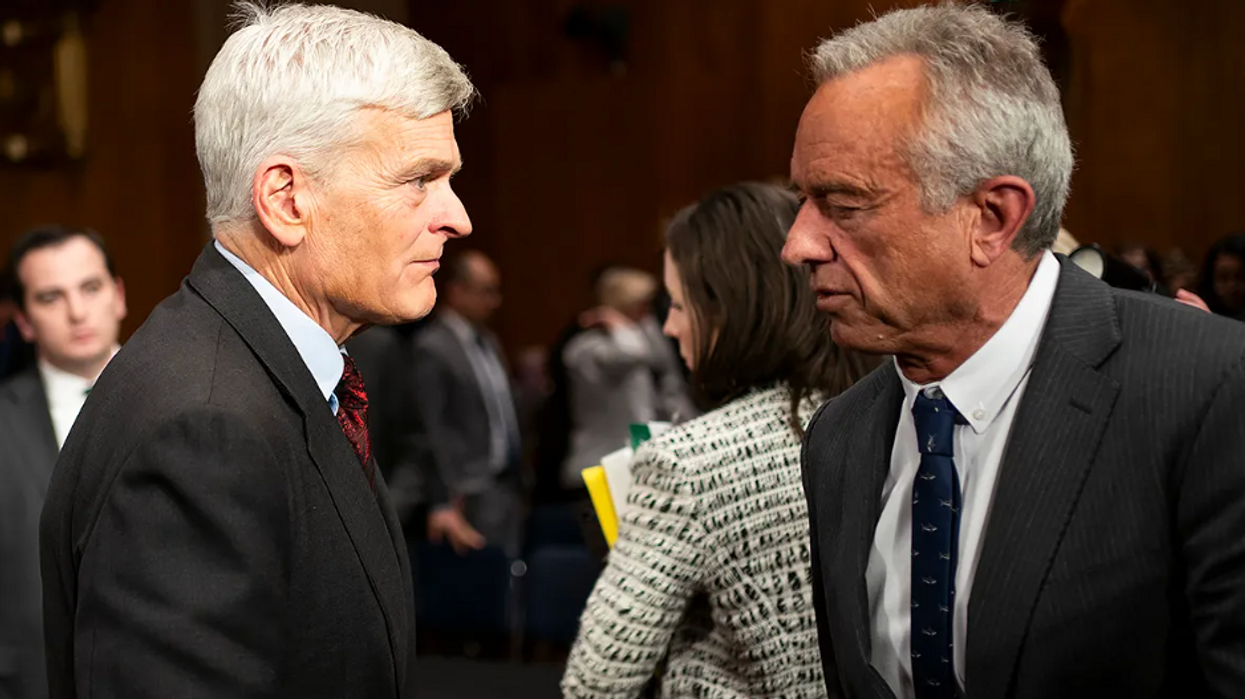Blocking Vaccines, RFK Jr. Guarantees 'A Lot Of Americans Are Going To Die'
Sen. Bill Cassidy, the Republican from Louisiana, is also a doctor. He put up resistance last February to Donald Trump's choice to head the Department of Health and Human Services, Robert F. Kennedy Jr. "Bobby," as Trump likes to call him, has long cast doubts on the safety of vaccines that have saved millions from death or serious disease while causing almost no problems.
Kennedy is an ignoramus on such matters and has a few loose screws besides. But Cassidy ultimately gave in, presumably to escape MAGA's wrath. He gave Kennedy the deciding vote for confirmation.
Cassidy is back, however. As leader of the Senate's health committee, he tried but failed to delay a committee meeting to consider RFK Jr.'s nutty move to fire all 17 members of the panel that advises on the use of vaccines in the United States. Kennedy's eight replacements, Cassidy wrote, "do not have significant experience studying microbiology, epidemiology or immunology." Another concern was that a director of the Centers for Disease Control and Prevention, which takes guidance from the panel, had not yet been put in place.
Kennedy's manipulative line is that "a clean sweep is needed to reestablish public confidence in vaccine science" — a confidence that he and fellow crackpots have done their best to undermine with junk science. Kennedy has falsely accused the fired experts of having conflicts of interest with companies developing vaccines. That problem does not exist because of stringent oversight.
It's truly rich that Kennedy would accuse anyone of a conflict of business interests. He currently takes a cut on money extracted in lawsuits against drug companies.
Cassidy may have been moved by the resignation of Dr. Fiona Havers from the CDC. A senior physician overseeing virus surveillance, Havers warned early this month that "people are going to die" if Kennedy's new vaccine advisory panel takes over.
Another reason given for Cassidy's attempt to slow down approval of the panel — formally known as the Advisory Committee on Immunization Practices — is that Kennedy had promised during the confirmation process that he would not change ACIP. Guess Bobby was lying.
Trump earned credit in his first term for the Operation Warp Speed program that sped the development of a vaccine against COVID. And so why did he name a vaccine "skeptic" (the nice word) to run the incredibly important HHS?
I have theories. One is that Trump simply enjoys Kennedy's wackiness. He is colorful with those stories of a whale head strapped on his car, the dead bear cub left in Central Park and the worm eating his brain. In sum, Bobby amused him. Trump told him to "go wild" at HHS.
Little sleep would be lost if some rubes and woo-woo Californians suffer illness and death because they believed the conspiracies fostered by medical quackery? Americans able to distinguish expertise from TikTok baloney would know to get their shots. Stuff happens to the ill-informed or, to use one of Trump's favorite terms, "stupid people."
The tragedy goes beyond Americans dying because they were talked out of a vaccine shown to be overwhelmingly safe. The vaccine-bashing also slows the development of protections against future health threats. The Trump administration's undermining of medical expertise — and cuts in research money — will slow down advancements in messenger RNA vaccines, T-cell work and other medical miracles that have begun to smite formerly incurable diseases.
Yes, people will die. They already have. An analysis of CDC data concluded that perhaps 250,000 Americans who had access to shots and didn't get them died unnecessarily from COVID.
This is the America we live in. The well-informed will survive. Others are on their own.
Reprinted with permission from Creators.















